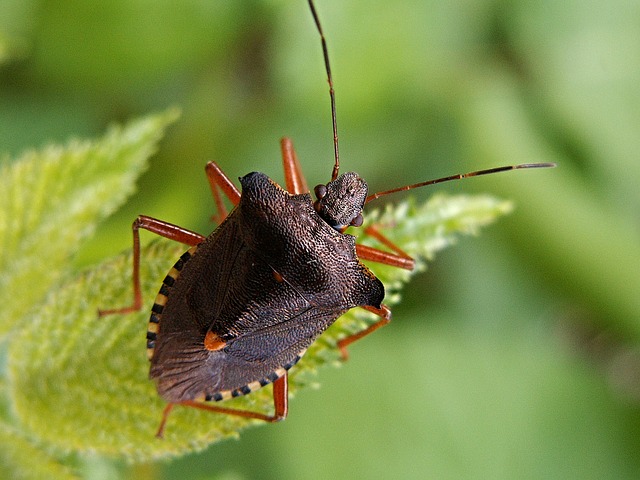
If you have a garden, you have pests. It’s unavoidable, but using pesticides to get rid of them should be your last resort (according to this article, homeowners use up to 10 times as many chemicals as farmers do per acre. Can you guess where those chemicals end up?).
There are many ways to deal with pesky pest problems.
First, recognize that insects and diseases are most likely to attack plants that are stressed out and suffering from poor growing conditions. This happens in soil that is depleted of essential minerals and nutrients. For example, the stems and cell walls of plants without access to soluble silicon become weakened—making them less able to resist injuries causes by insects and other pests.
To the extent possible, choose native plants that are well-adapted to your specific climate. Non-native plants that struggle to survive are prone to problems from pests and disease.
Grow a diversity of plant types and plant sizes to help with natural pest control. Having a variety of flowers that bloom at different times during the growing season helps ensure that there is ample food supply for the “good guys,” i.e., the beneficial bugs that eat the “bad guys.” Diverse plantings also provide protective habitats for birds, butterflies, bees and other helpful insects.
Practice crop rotation to prevent the pathogens that cause disease. By rotating the planting of different plant types, gardeners can keep pathogens from building up in the soil from one year to another.
Improve the health of your soil by adding back the essential minerals that become depleted during the growing season. All-natural Cascade Minerals Remineralizing Soil Booster is made entirely of volcanic basalt and contains no synthetic materials or man-made additives. Approved for organic production, it increases microbial activity and supports healthy plant growth. It also reduces or eliminates the need for synthetic fertilizers which can leave plants susceptible to disease by causing them to grow too fast.
Last but not least, learn to identify friend from foe. That creepy, crawly spider that has you running for the hills? He may be your greatest friend when it comes to getting rid of other nuisances in the garden. Focus on creating a healthy ecosystem and things will take care of themselves…naturally.
